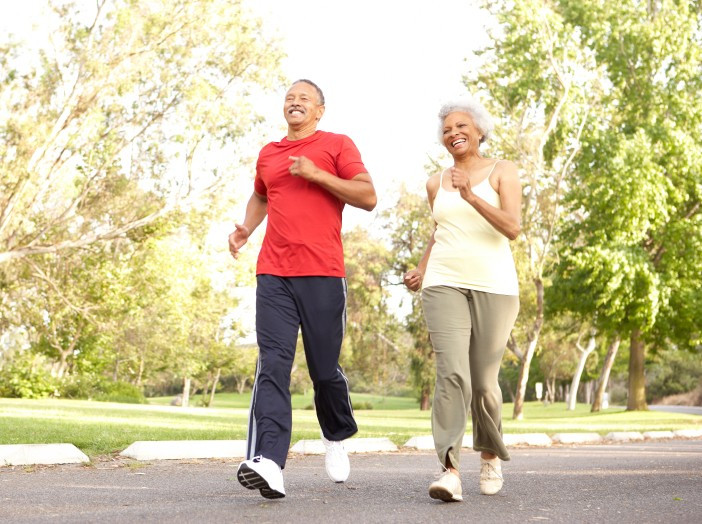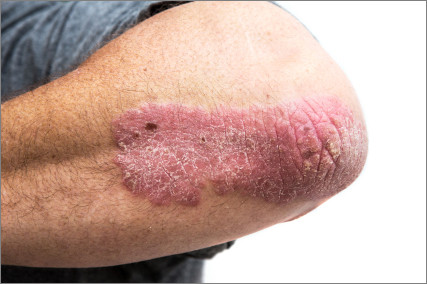
Trying to lose weight? Be careful not to lose muscle

Is your skin problem actually an autoimmune condition?

People with diabetes face higher risk of hearing loss

Antibiotic-free fixes for recurrent UTIs

Musculoskeletal syndrome of menopause: When menopause makes you ache all over

When can older women stop getting mammograms?

To lose weight, especially harmful belly fat, combine diet and exercise

Can men hold off on treating recurring prostate cancer?

The 7 types of rest and why we need them all

What are the early warning signs of cervical cancer?
Harvard Health Blog
Read posts from experts at Harvard Health Publishing covering a variety of health topics and perspectives on medical news.
Articles
Myth busted: bra wearing not linked to breast cancer
According to one persistent Internet myth, women who wear bras are more likely to develop breast cancer. Not true, says a study published online in the journal Cancer, Epidemiology, Biomarkers, and Prevention. In a study of more than 1,500 women, researchers from the Fred Hutchinson Cancer Research Center in Seattle found no links between risk of two common types of breast cancer — invasive ductal carcinoma or invasive lobular carcinoma — and any aspect of bra wearing, including cup size, use of a bra with an underwire, age at first bra use, and average number of hours per day a bra was worn. This may not be the last word on the subject, since the Fred Hutchinson study represents only the second to look at the connection between bra use and breast cancer. But until other findings appear, women worried that wearing a bra might cause cancer have one less thing to worry about.
FDA panel rejects high intensity focused ultrasound for early prostate cancer
An FDA advisory panel rejected a French company’s application to market high intensity focused ultrasound as a treatment for localized prostate cancer.
Hormone therapy does not improve survival for men with localized prostate cancer
In men with cancer that has spread beyond the prostate gland, radiation therapy plus hormone therapy can ease symptoms and improve survival. But some doctors give hormone therapy by itself to millions of men with localized tumors that haven’t spread beyond the prostate. A new study shows that this approach doesn’t help, and may hurt.
Guidelines recommend sleep test for obstructive sleep apnea
Obstructive sleep apnea is a common cause of daytime sleepiness. It occurs when the muscles in the back of the throat relax too much during sleep. This lets the tissues around the throat close in and block the airway. People with obstructive sleep apnea can wake up gasping for breath scores of times a night, usually without knowing it. Obstructive sleep apnea can boost blood pressure and increases the risk of stroke. New guidelines from the American College of Physicians recommends an overnight sleep test to diagnose, or rule out, obstructive sleep apnea for individuals with unexplained daytime sleepiness. These are usually done in a sleep center, but home tests can also be done using a portable monitor.
Acetaminophen may do little for acute back pain
When back pain strikes, all you want is relief—as quickly as possible. Many folks turn to over-the-counter pain relievers to help take the edge off and keep them moving. Acetaminophen and non-steroidal anti-inflammatory drugs, or NSAIDs (ibuprofen, naproxen, aspirin), are common and reasonable choices. Australian researchers tested how well acetaminophen worked for back pain that comes on suddenly (so-called acute back pain). Not much, it turned out. Among people who took acetaminophen as needed or on a three-times-a-day schedule, it took about 17 days for the pain to go away completely. Among those who took a placebo, it took 16 days. Does this mean that you shouldn’t bother to use acetaminophen for back pain? Not necessarily. But it might be worth trying cold, heat, and light physical activity.
Treating gum disease may lessen the burden of heart disease, diabetes, other conditions
In the folk song “Dem Bones,” every bone is connected to the next one in line. Here’s an interesting wrinkle on that idea: The gum bone, or at least problems with it, are connected to all sorts of health problems. Gum disease—which begins when the sticky, bacteria-laden film known as plaque builds up around your teeth—is closely linked to premature birth, heart disease, diabetes, and other chronic health problems. Now, a report in the August issue of the American Journal of Preventive Medicine finds that treating gum disease (also called periodontal disease) can lead to better health — as evidenced by lower health care costs and fewer hospitalizations — among people with common health conditions. The common thread between gum disease and chronic health conditions is inflammation. Eliminating the gum infection may dampen that harmful response throughout the body.
Raising beef creates more pollution than raising pork, poultry, dairy, or eggs
An report in this week’s Proceedings of the National Academy of Sciences calculates several environmental costs of raising cows for meat and milk, poultry and pork for meat, and chickens for eggs. According to the report, per calorie of food that we consume, dairy, poultry, pork, and eggs have similar environmental costs. Compared with their average, beef production generated five times more greenhouse gases, needed six times more fertilizer and 11 times more irrigation water, and used 28 times the land. The same four costs for growing potatoes, wheat, and rice were two-fold to six-fold lower than the nonbeef foods in land use, greenhouse gas emissions, and fertilizer use, and about the same for irrigation water.
FDA’s proposed changes to the Nutrition Facts label are good, but could be better
Every day, millions of Americans use the Nutrition Facts labels on food packages to make healthy choices. The U.S. Food and Drug Administration has recently proposed changes to make the labels even more useful. It’s an important move that could help curb the skyrocketing number of Americans with type 2 diabetes, osteoarthritis, and other weight-related conditions. The proposed new label will list information about added sugars, update daily values for sodium and dietary fiber, list the amount of potassium and vitamin D, and remove the “Calories from Fat” category while continuing to list types of fat. For foods that come in larger packages but could be consumed in one sitting, manufacturers would have to use a two-column label showing calorie and nutrition information for both a single serving and the entire package. These changes are a step in the right direction, but don’t go far enough with sugar, ingredient listing, and nutrient claims.
Bad weather isn’t to blame for your aching back
It’s not uncommon for people to blame the weather for making their arthritis or back pain flare up. A team of Australian researchers has one word for that: bunk. They followed nearly 1,000 people who were seen for acute low back pain in several Sydney primary care clinics noted the weather conditions when the back pain started, as well one week and one month earlier. And they found … nothing. No connection between back pain and temperature, rain, humidity, or air pressure. The results were published online in the journal Arthritis Care & Research. This isn’t the first word on the pain-weather connection, and won’t be the last. If animals can sense earthquakes, then it may be possible for people with back pain, arthritis, or other types of pain to sense changes in the weather that the rest of us don’t notice. But we need good proof.
New strategies help smokers quit when nicotine replacement alone doesn’t work
Breaking a smoking habit can be hard. Nicotine is so addictive that smoking, or using tobacco in other forms, may be the toughest unhealthy habit to break. But it’s possible to quit. Nicotine replacement, in the form of nicotine patches, gum, sprays, inhalers, and lozenges, can help overcome the physical addiction. Medications such as varenicline (Chantix) and bupropion (Zyban) can also help. They can help reduce the cravings for a cigarette, and may also make smoking less pleasurable. Two new studies show that adding one or both of these medications to nicotine replacement can help improve quit rates. This research doesn’t suggest that smokers take varenicline and bupropion as a first step in smoking cessation. But when nicotine replacement alone hasn’t helped, adding varenicline with or without bupropion may lead to success.
Advice you may not hear from your doctor: Don’t go out in the sun without protection
With all the warnings against soaking up too much sun, getting ready to go outside can feel like you need a checklist like astronauts use when suiting up for a 6-hour spacewalk in the full blast of the sun’s radiation. Putting on sunscreen and following other sun-smart strategies is for a good cause: preventing melanoma—the most dangerous kind of skin cancer. Curiously, doctors tend not to talk about sunscreen use with their patients. One study showed that, in 18 billion outpatient visits, primary care doctors mentioned sunscreen to just 0.07% of their patients, or roughly 1 in 1,400. But even though your doctor may not mention it, you know better: Put on a broad spectrum sunscreen with an SPF of at least 30 before you go out. Reapply every two to three hours, or more if you are in the water or sweating. Wear a wide-brimmed hat or sun-protective clothing.
Expert panel says healthy women don’t need yearly pelvic exam
The annual pelvic exam, an oft-dreaded part of preventive care for women, may become the as-needed pelvic exam, thanks to new guidelines from the American College of Physicians. For decades, doctors have believed this exam may detect problems like ovarian cancer or a bacterial infection even if a woman had no symptoms. But an expert panel appointed by the American College of Physicians now says that healthy, low-risk women do not need to have a pelvic exam every year. The exam isn’t very effective at finding problems like ovarian cancer or a vaginal infection, and it often causes discomfort and distress. Sometimes it also leads to surgery that is not needed. The new guidelines only apply to the pelvic exam, and only in healthy women.
Trained dogs can sniff out prostate cancer
With their ability to smell tiny amounts of chemicals, trained dogs can easily find explosives or illegal drugs hidden in a suitcase. But mounting evidence points to another helpful job for man’s best friend: finding prostate cancer before it causes any symptoms.
The “heartbreak of psoriasis” may affect your joints, heart, and mind
Nearly 7 million adults in the United States suffer from psoriasis. This condition is characterized by red patches of skin covered with silvery scales, often on the elbows and knees. But today doctors understand psoriasis as an inflammatory condition that may affect more than just the skin. People with psoriasis are more likely to have other conditions linked to inflammation, including heart disease, diabetes, obesity, and inflammatory bowel diseases such as Crohn’s disease and ulcerative colitis. And nearly a third of people with psoriasis develop psoriatic arthritis, which causes stiff, painful joints and other debilitating symptoms. Several studies suggest that weight loss and vigorous exercise, both of which help combat inflammation, may help thwart psoriasis as well.

Trying to lose weight? Be careful not to lose muscle

Is your skin problem actually an autoimmune condition?

People with diabetes face higher risk of hearing loss

Antibiotic-free fixes for recurrent UTIs

Musculoskeletal syndrome of menopause: When menopause makes you ache all over

When can older women stop getting mammograms?

To lose weight, especially harmful belly fat, combine diet and exercise

Can men hold off on treating recurring prostate cancer?

The 7 types of rest and why we need them all

What are the early warning signs of cervical cancer?
Free Healthbeat Signup
Get the latest in health news delivered to your inbox!
Sign Up























